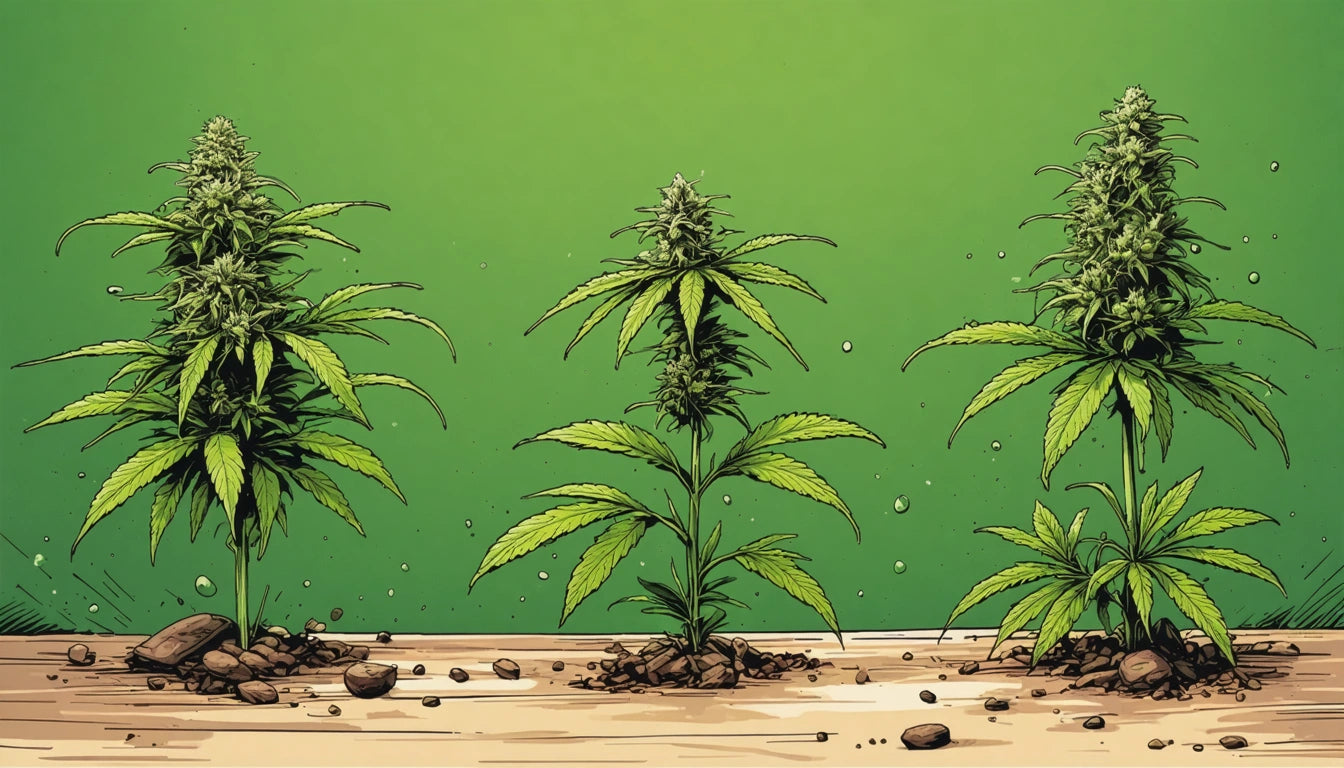Table of Contents
The Impact of Weed on Blood Pressure: Does It Raise or Lower It?
The relationship between cannabis and blood pressure is complex and often misunderstood. Many users and medical professionals wonder: does weed raise blood pressure or does weed lower blood pressure? The answer isn't straightforward, as cannabis can have biphasic effects, meaning it may both increase and decrease blood pressure depending on various factors including dosage, timing, individual physiology, and consumption method.
Immediate Effects of Cannabis on Blood Pressure
When cannabis is first consumed, it typically causes an acute increase in blood pressure. This initial spike is often accompanied by an increased heart rate, which can be concerning for individuals with pre-existing cardiovascular conditions.
According to research on smoking weed and blood pressure, THC (tetrahydrocannabinol) activates the sympathetic nervous system, triggering the release of norepinephrine. This hormone constricts blood vessels and increases heart rate, temporarily raising blood pressure.
However, this initial increase is usually followed by a more prolonged period of decreased blood pressure, particularly as the body develops tolerance to THC. This secondary effect is what leads many to believe that cannabis primarily lowers blood pressure.
The Biphasic Response Explained
The biphasic blood pressure response to cannabis follows this pattern:
- Initial phase (minutes after consumption): Blood pressure rises
- Secondary phase (as THC metabolizes): Blood pressure decreases
- Long-term use: Potential development of tolerance to these effects
This pattern explains why both claims that "weed raises blood pressure" and "weed lowers blood pressure" contain elements of truth, making the overall picture more nuanced than either statement alone.
Long-Term Effects of Regular Cannabis Use
The question "does weed raise blood pressure long term" requires examining chronic use patterns. Regular cannabis users often develop tolerance to the acute cardiovascular effects, potentially leading to different long-term outcomes compared to occasional users.
Some studies suggest that regular cannabis use may be associated with lower blood pressure readings over time. However, research on cannabis and blood pressure remains limited by legal restrictions and study design challenges.
Interestingly, some evidence indicates that quitting weed may lower blood pressure in long-term users who had developed dependence, suggesting complex interactions between cannabis, the endocannabinoid system, and cardiovascular regulation.
How Different Consumption Methods Affect Blood Pressure
The method of cannabis consumption significantly influences its effects on blood pressure:
Smoking vs. Vaping
Smoking cannabis may have additional cardiovascular impacts due to combustion byproducts, which can damage blood vessels and potentially contribute to hypertension over time. Vaping eliminates some but not all of these concerns.
Edibles and Blood Pressure
Many users wonder if edibles lower blood pressure differently than smoked cannabis. Edibles typically produce a more gradual onset but longer-lasting effects. The delayed absorption may result in less dramatic initial blood pressure spikes, but the extended duration means cardiovascular effects persist longer.
According to comparative studies on consumption methods, edibles may produce more consistent blood pressure effects than inhaled cannabis, though individual responses vary considerably.
Medical Considerations for Cannabis Users
For individuals with hypertension or hypotension, understanding whether weed helps with blood pressure is crucial. Some patients report that cannabis helps lower blood pressure, while others experience concerning increases.
Patients taking blood pressure medications should exercise particular caution, as cannabis may interact with these drugs. For example, combining cannabis with beta-blockers or ACE inhibitors could potentially cause excessive blood pressure reduction.
Medical professionals increasingly recognize the importance of cannabis safety education, similar to how safety measures for pharmaceutical products have evolved to protect vulnerable populations. Just as medications require proper packaging and usage instructions, cannabis products need clear labeling about potential cardiovascular effects.
CBD and Blood Pressure
Unlike THC, cannabidiol (CBD) appears to have more consistently beneficial effects on blood pressure. Some research suggests CBD may reduce resting blood pressure and blood pressure increases due to stress. This difference highlights the importance of understanding cannabinoid profiles when considering cannabis for medical purposes.
Safety Recommendations for Users with Blood Pressure Concerns
If you're concerned about how cannabis might affect your blood pressure, consider these guidelines:
- Monitor your blood pressure before and after cannabis use to understand your personal response
- Start with low doses and products with lower THC content
- Consider CBD-dominant products if you're seeking potential blood pressure benefits
- Discuss cannabis use with healthcare providers, especially if taking blood pressure medications
- Stay hydrated, as dehydration can exacerbate blood pressure fluctuations
- Avoid cannabis if you have uncontrolled hypertension or history of heart attack or stroke
Understanding whether weed raises or lowers your blood pressure requires personal monitoring and awareness of how different strains and consumption methods affect you individually.
The Future of Cannabis and Cardiovascular Health Research
As cannabis legalization expands, researchers have greater opportunities to study its cardiovascular effects thoroughly. Future research will likely clarify whether weed increases blood flow, how different cannabinoid profiles affect blood pressure, and whether cannabis can be safely used by people with various cardiovascular conditions.
The question "does weed raise or lower blood pressure" will eventually have more definitive answers as clinical trials with diverse populations and rigorous methodologies become possible. Until then, users should approach cannabis with informed caution, especially those with existing cardiovascular concerns.
For now, the most accurate answer to whether cannabis raises or lowers blood pressure is that it can do both, depending on timing, dosage, individual factors, and consumption method. This complexity underscores the importance of personalized approaches to cannabis use, particularly for medical purposes.











Leave a comment
All comments are moderated before being published.
This site is protected by hCaptcha and the hCaptcha Privacy Policy and Terms of Service apply.